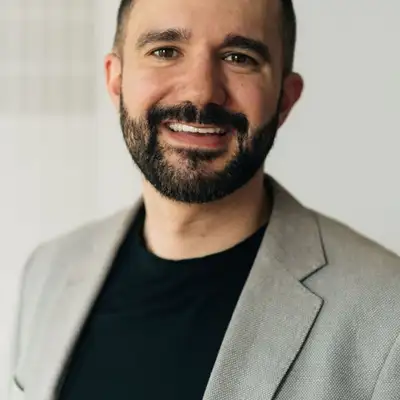206. EXPLOSIVE ADHD Debate You Need to Hear with Psychiatrist Dr. Ryan Sultan
Dr. Ryan Sultan is a Board Certified Adult and Child Psychiatrist, researcher and Assistant Professor of Clinical Psychiatry at Columbia University Irving Medical Center. He is also in private practice with expertise in the evaluation and treatment of ADHD. One in six American boys is now diagnosed with ADHD. In France, it's one in 200. American children are diagnosed with ADHD at rates 30 times higher than other Western nations. We consume 80% of the world's ADHD stimulants despite being 4% of the population.There's no blood test, no brain scan, no biological evidence this "disorder" actually exists - just subjective checklists and lines of questioning. In this essential episode, Dr. McFillin challenges the validity and reliability of ADHD diagnosis, and what unfolds is a stunning revelation about how 7 million children ended up on amphetamines.
References:
References:
- MTA Cooperative Group. (1999). A 14-month randomized clinical trial of treatment strategies for ADHD. Archives of General Psychiatry, 56(12), 1073-1086.
- Molina, B. S., et al. (2009). MTA at 8 years: Prospective follow-up of children treated for combined-type ADHD. Journal of the American Academy of Child & Adolescent Psychiatry, 48(5), 484-500.
- Key finding: No difference in outcomes between medicated and non-medicated groups at 3-year and 8-year follow-ups
- CDC. (2022). Data and Statistics About ADHD. Centers for Disease Control and Prevention.
- 7.1 million US children diagnosed with ADHD (11.4% of all children)
- 15.5% of boys diagnosed vs. 7.5% of girls
- 1 in 6 boys aged 4-17 diagnosed with ADHD
- 3.3 million children aged 3-17 currently on ADHD medication
- Regier, D. A., et al. (2013). DSM-5 field trials in the United States and Canada. American Journal of Psychiatry, 170(1), 59-70.
- ADHD kappa reliability: 0.61 (research settings) to 0.35 (clinical practice)
Financial Data:
- ADHD medication market: $19.8 billion (2024, Market Research Reports)
- 10-fold increase in stimulant prescriptions: 1990-2024 (DEA production quotas)
- Funded by Johnson & Johnson (pharmaceutical company)
- Co-authored by Joseph Biederman (who later had to admit taking $1.6 million from drug companies without disclosure)
What This Article Inadvertently Reveals:
- The Diagnosis Shopping Game: The article admits that using DSM-IV criteria produces the "highest prevalence rates" compared to other diagnostic systems. Translation: American psychiatry created diagnostic criteria that captures the most kids. This isn't discovering disease - it's widening the net.
- The 20-Fold Difference They Can't Explain: The article acknowledges a "20-fold greater prevalence of childhood hyperactivity in North America compared with England" in 1970s studies. Their explanation? Different diagnostic practices, not different children. So they're admitting the "disease" depends entirely on who's doing the diagnosing.
- The Admission Hidden in Plain Sight: The authors state that differences in prevalence "reflect differences in diagnostic practice rather than true differences in behavior." They're literally admitting ADHD prevalence is about diagnostic opinion, not biological reality.
- Even establishment researchers like Faraone admit that ADHD prevalence varies 20-fold based on diagnostic criteria used, not actual differences in children's behavior. They acknowledge it's diagnostic practice, not disease prevalence, that creates these massive variations. This 2003 paper proves psychiatry has known for decades that ADHD rates are artificially inflated by American diagnostic criteria.
The Irony: This paper, trying to prove ADHD is universal, actually proves it's a diagnostic construct that changes based on which manual you use. That's not how real diseases work.
PLEASE SUPPORT OUR PARTNERS
Creators and Guests

Host
Dr. Roger McFillin
Dr. Roger McFillin is a Clinical Psychologist, Board Certified in Behavioral and Cognitive Psychology. He is the founder of the Conscious Clinician Collective and Executive Director at the Center for Integrated Behavioral Health.


